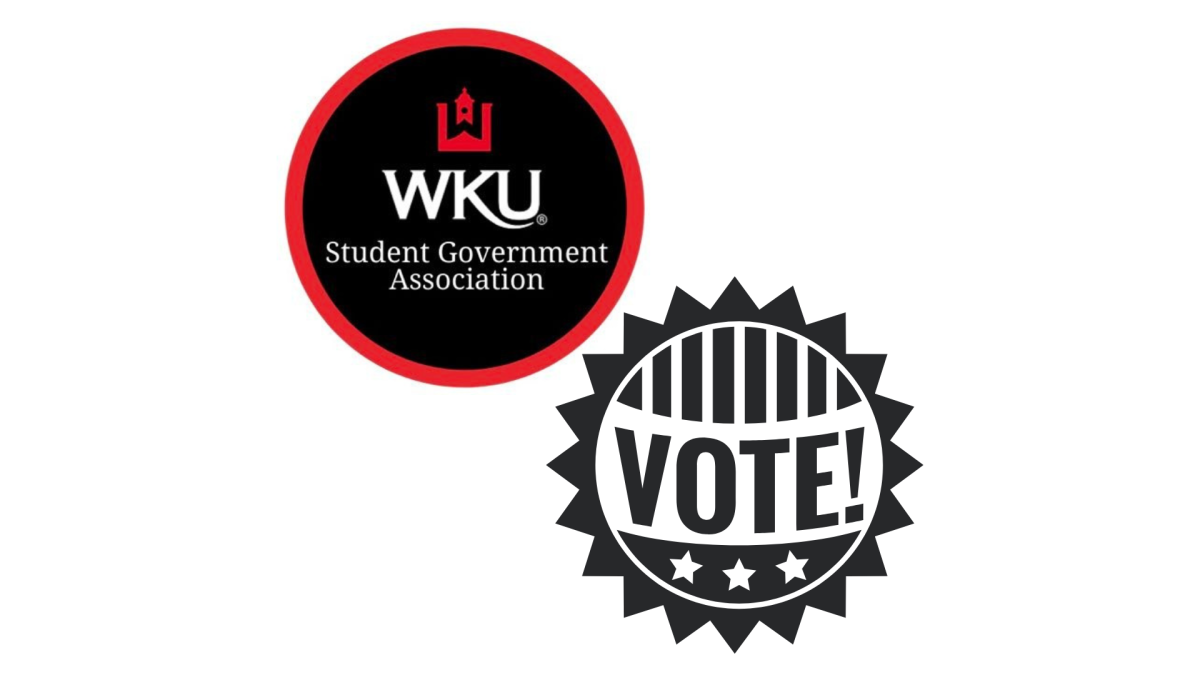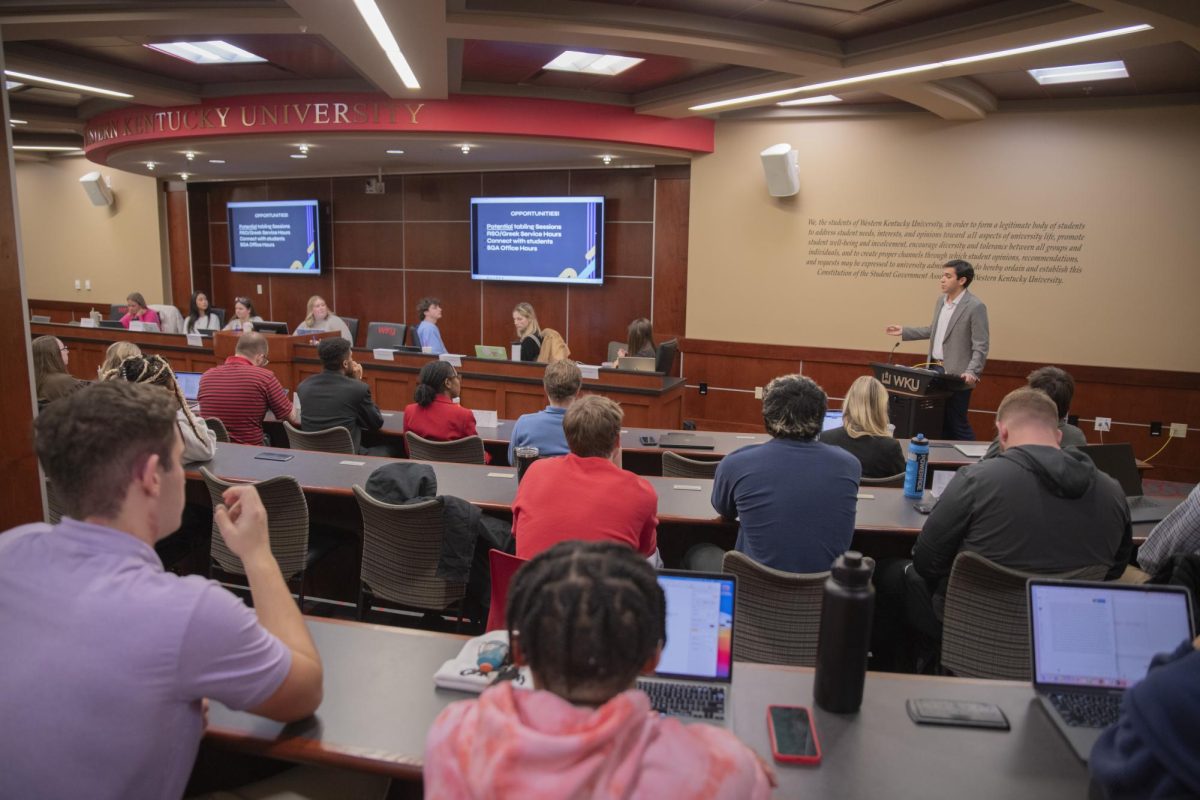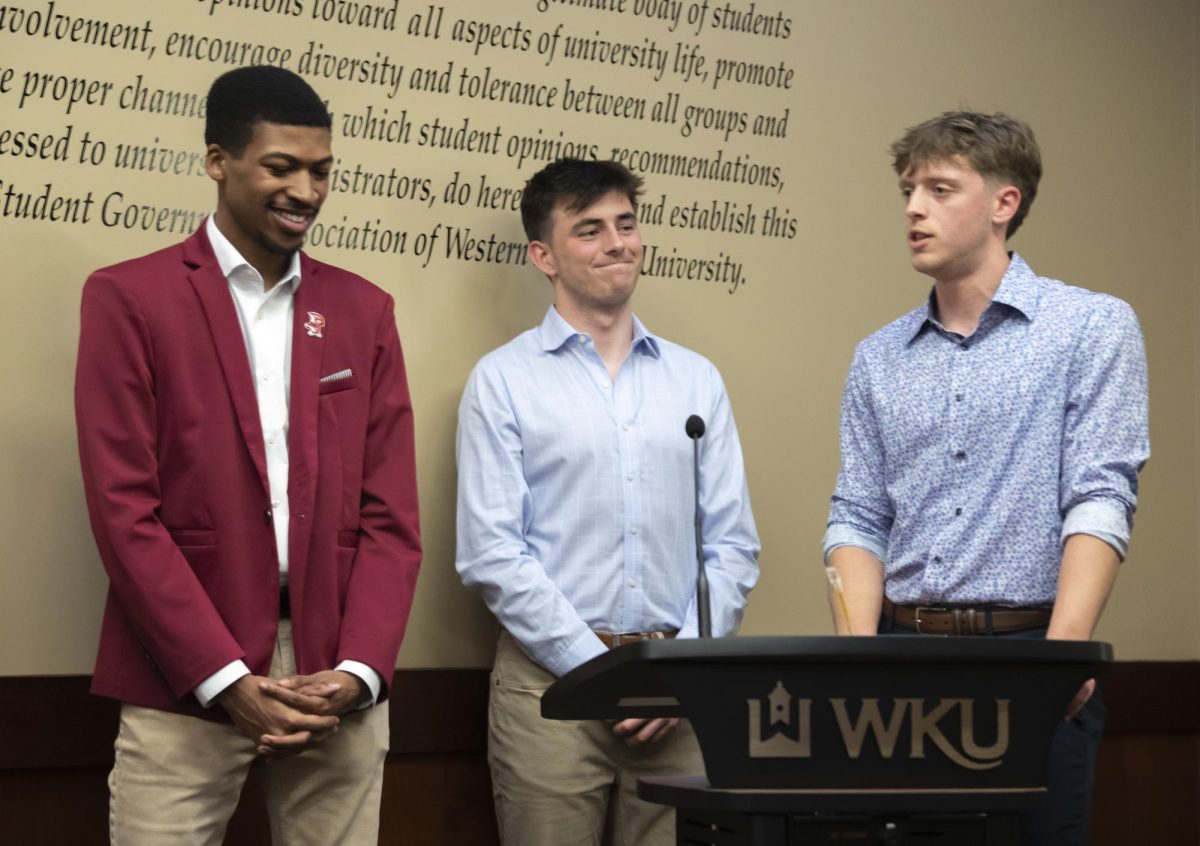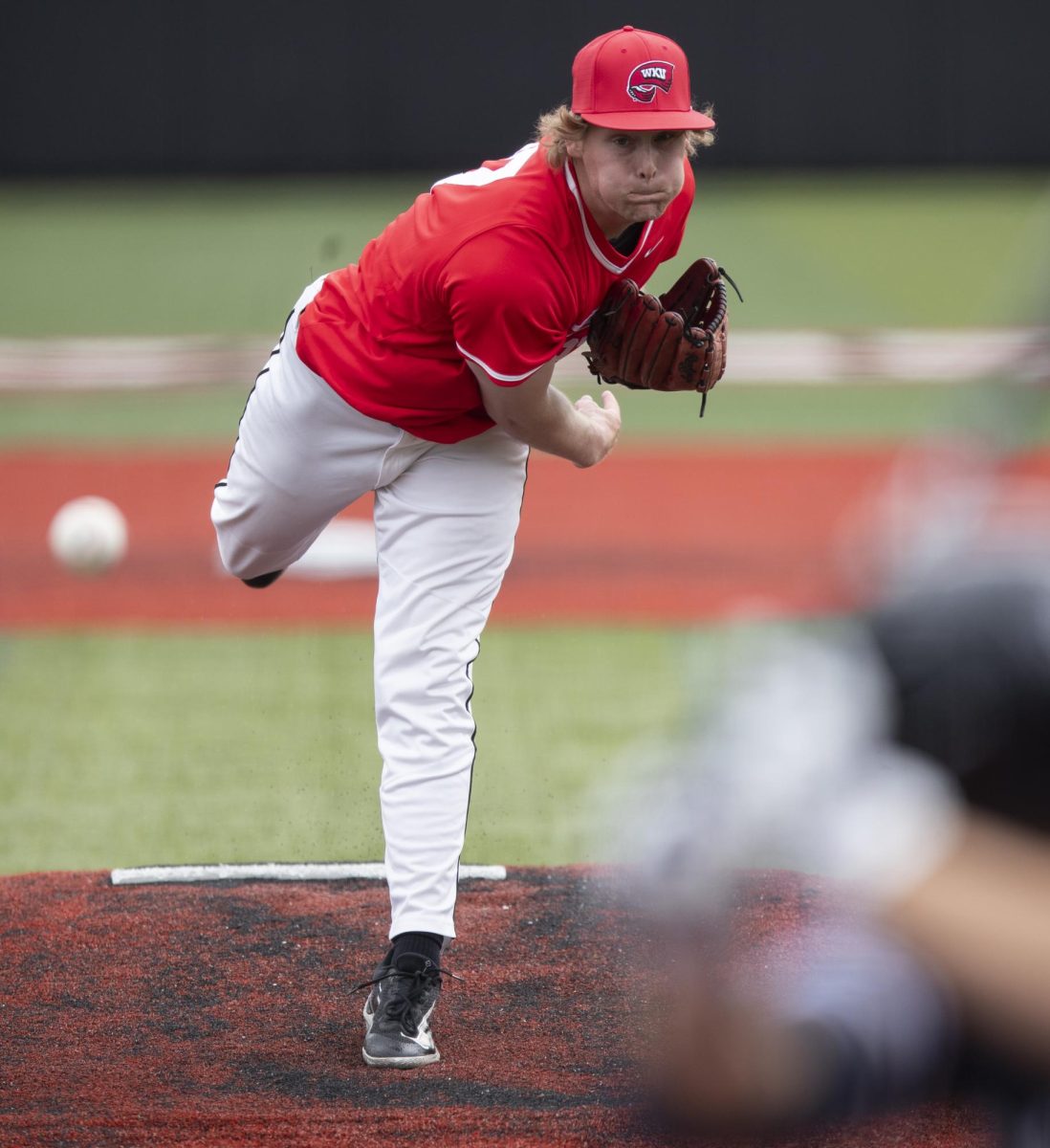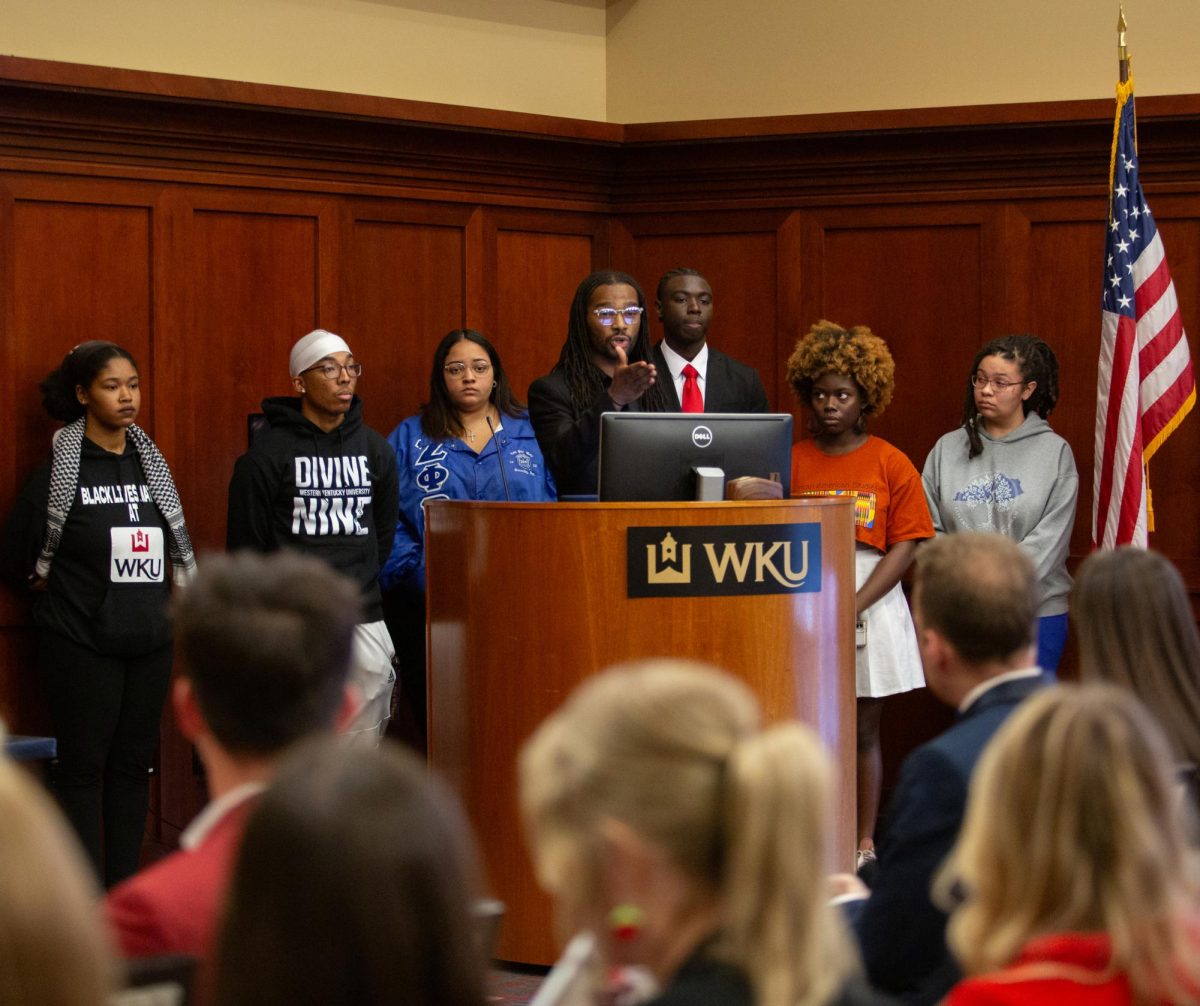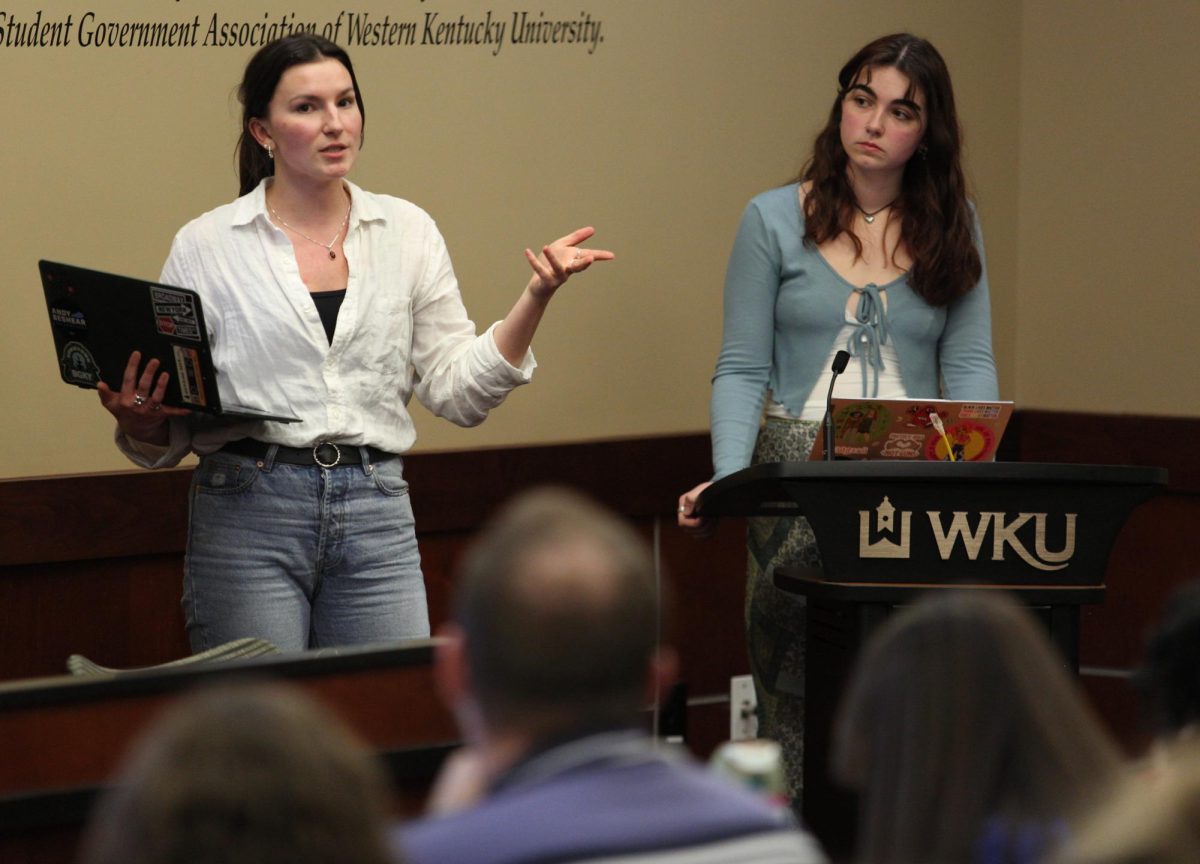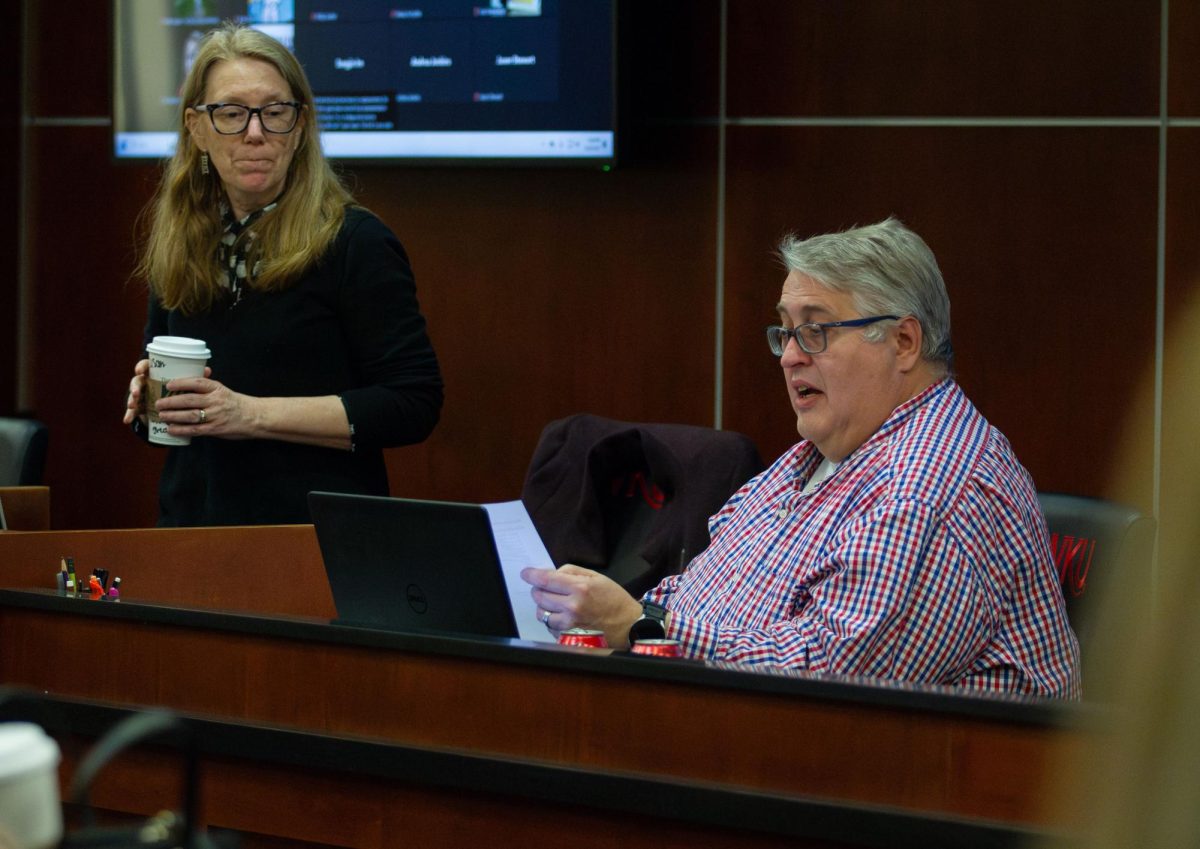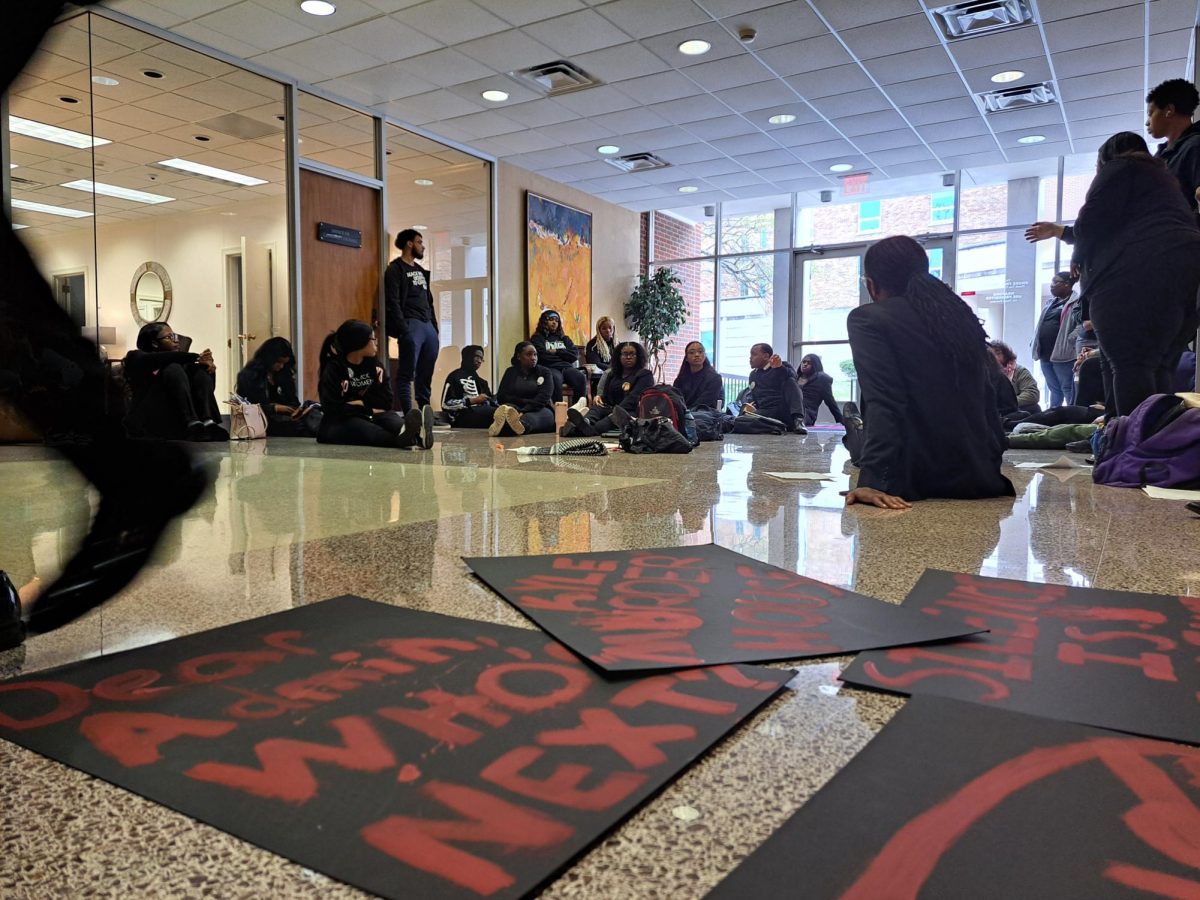A Murray State University lecturer continues to teach four classes a semester after the university found he “inappropriately” touched, kissed and asked a student to be photographed nude and was accused of harassment by three other women.
An Eastern Kentucky University professor resigned after the university determined he sent more than 25 sexually explicit emails to a student in his class. He now teaches at a university 800 miles away.
A Western Kentucky University assistant professor accused of misconduct resigned for the following year, ending the university’s investigation. WKU refuses to release information on six employees who were found to have violated the university sexual misconduct policy since 2013 because the employees resigned before “final action.”
Across the state, employees have been found in violation of misconduct policies for creating “hostile” environments, “inappropriately” touching students and having sexual relationships with students. In most cases, the public learns little about the allegations or the results of the university’s investigations.
A review of more than 1,200 pages of records obtained through public records requests to seven Kentucky universities revealed 62 employees in violation of their universities’ sexual misconduct and discrimination policies since 2011.
Fewer than half of the employees were terminated from their positions. Some resigned and moved on to other universities, which would be unlikely to know about the misconduct.
Other employees received punishments ranging from warnings to sexual harassment training sessions and were allowed to remain in the classroom or on staff.
These statistics do not include incidents at schools, such as WKU and Kentucky State University, that refused to release records related to sexual misconduct and discrimination altogether.
All seven universities cited privacy laws such as the Family Educational Rights and Privacy Act (FERPA) and Title IX to withhold or redact the records.
Deborah Wilkins, general counsel at WKU, said the decision to completely withhold records is intended to protect victims.
“I have to weigh the person’s privacy interests against the public’s right to know,” Wilkins said. “I don’t see how disclosing that type of information is more important than having a system that works, that helps the victim and that gives them a place to confidentially come forward with a complaint.”
Critics say universities are protecting perpetrators by hiding sexual misconduct from other students and the public.
“Was this employee telling the occasional off-color joke or was this employee pressuring students to submit to sex in exchange for grades?” questioned Frank LoMonte, director of the Student Press Law Center, who has more than 20 years of experience dealing with similar cases.
“The public doesn’t need to know the accuser, but they certainly need to know how serious the behavior was,” he added.
Repeat offenders not taken out of the classroom
Across the state at least 31 employees who were found to have violated sexual misconduct and discrimination policies since 2011 have kept their positions at Kentucky public universities.
This includes Murray State University lecturer William Gross Magee, who was accused of sexual harassment by four students.

The first student submitted a complaint to the Office of Equal Opportunity after two semesters of “sexual and verbal harassment,” according to documents obtained from Murray State through an open records request.
The student told the Office of Equal Opportunity that Magee offered her a drink from the tequila bottle lying in the backseat of his car after a field trip.
The student said he then reached across the seat, put his hand on her knee and kissed her, she said in her complaint.
Magee then told the woman he wanted to take nude pictures of her and he assured her they would be “tasteful,” she told the Office of Equal Opportunity. He invited her to follow him back to an address, which was redacted from the records. She drove in the opposite direction, the student said in her complaint.
The next week after class, Magee approached the student and apologized for his behavior saying it was “unlike him,” she told officials. Magee later confirmed to the Office of Equal Opportunity that he acted “inappropriately” on the field trip.
But the student said the encounters with Magee did not end there, according to her complaint to the Office of Equal Opportunity.
The next semester, she took another class taught by Magee because she was already enrolled and it was paid for, she said in her complaint.
Magee asked the woman to drinks and questioned her ongoing divorce, she told the Office of Equal Opportunity.
“I feel ashamed at how much I have let this man harass me,” the woman said in her complaint. “I kept telling myself I could handle it and he continued doing it.”
The student decided to come forward after “two young girls” in her class claimed Magee would offer them a better grade if they “flashed him,” she told university officials.
“Magee has made my life a living hell,” she told the Office of Equal Opportunity.
This student was one of four who came forward with allegations against Magee since 2011, according to the Office of Equal Opportunity documents.
Three other female students claimed they had experienced similar verbal harassment by Magee and two of them claimed Magee propositioned them to “flash him,” according to their complaints.
Magee admitted to acting “inappropriately” on the field trip and that he made an advance on her, he told the Office of Equal Opportunity during a review process.
“In every complaint there is some grain of truth, and a lot of misinformation and things taken the wrong way,” Magee said in his response filed with the Office of Equal Opportunity. “I agree that I acted inappropriately with [name redacted]. However, at the time she showed no negative attitude about the issue, in fact in my opinion, offered some encouragement. For example, telling me I had great eyes, etc.”
At the conclusion of his response to the Office of Equal Opportunity, Magee said: “I however vehemently deny that I sexually harassed her or any other student.”
Overall, Murray State officials found Magee’s actions subjected the initial student to sexual harassment and created a hostile environment for all women.
The university required Magee to undergo sexual harassment training sessions and issued a written warning as punishment.
In the spring 2017 semester, Magee taught four classes and more than 60 students at Murray State University.
Magee did not respond to multiple phone calls and emails from the Herald seeking comment.
Not the first one, not the last one
Universities allowing policy violators to remain in the classroom is not limited to Murray State University.
More than 300 miles across the state, a Northern Kentucky University professor kept his job after several accounts of sexual harassment spanning more than 10 years, according to documents obtained through an open records request.
In both cases, NKU officials referred to the sexual harassment as “serious” and gave Dennis Miller, a philosophy lecturer, written warnings.

In 2007, a female student approached Miller expressing concerns about her final paper. The freshman student was having trouble understanding the material, and Miller agreed to meet after hours to “help her out,” she later told Steve Meier, who then served as associate for the dean of students.
However, little discussion of her final paper occurred during the meeting, she told Meier.
According to a university document detailing the complaint, Miller talked about his upcoming book and put his hand on her knee twice during the discussion.
After smoking cigarettes and talking for half an hour, Miller walked with the student across campus to her car, brushed her hair into place and kissed her cheek, she told Meier.
The student submitted a complaint because she wanted someone to speak with professor Miller about the situation so he didn’t have similar encounters with other students, she said in her complaint to the university.
When Meier confronted Miller about the allegations, Miller admitted everything in the report was accurate, according to a document detailing their meeting.
At the time, Meier “strongly” advised Miller to keep his distance from students, according to a document detailing their meeting.
In 2015, Miller made another student “uncomfortable” with “inappropriate” text messages, touching and kissing her on the cheek, according to a university document detailing the complaint.
Miller confirmed the claims were accurate to university officials, according to a document detailing their meeting.
Katherine Frank, who then served as dean of the College of Arts and Sciences, advised Miller to “evaluate carefully correspondence with all students,” according to an email from Frank to Miller.
Miller apologized for his actions, agreed to stop contact with the student and said he would be more conscious about interactions with students, he told university officials.
NKU was not the only school where Miller was the subject of misconduct complaints. While working as a lecturer at NKU, he was also working as a bus driver for the Campbell County School District.
Students in the Campbell County School District filed three complaints against Miller saying he made inappropriate comments on the job, according to documents obtained by The Cincinnati Enquirer.
The most recent incident occurred in 2015 with comments about pornography and other obscenities, which led to a two-day suspension, according to documents obtained by The Enquirer.
Miller was fired from the school district when the former interim superintendent Donald Pace learned about the NKU accusations in June 2016. He worked for the Campbell County School District for 22 years.
“He was automatically dismissed and is no longer an employee here,” Pace, who died in September 2016, told The Enquirer at the time. “When we discovered what was happening at NKU, that gave an indication of a continual pattern and we can’t have that around our boys and girls.”
Miller told The Enquirer he was going to retire anyway when he was informed of the dismissal. He also told The Enquirer the school district was “just protecting itself from public perception.”
“I really have done nothing wrong here,” Miller told The Enquirer in June 2016. “It’s not surprising to me what they have done, but they are quick to throw bus drivers under the bus anytime there is a complaint instead of really getting our side.”
Miller continued teaching at NKU for the remainder of the spring 2016 semester, but his contract was not renewed for the 2016-2017 year. He worked at NKU for 27 years.
The Herald attempted to contact Miller with multiple phone calls, but he did not respond before publication.
Offenders move on to work at other universities
If employees’ positions are terminated or they resign or retire after a violation, their case is often not made public and they are able to work at other universities
At least eight of the 62 employees who violated university policy are working at other schools scattered across the country, according to the records the Herald was able to obtain.
Heavily redacted records from Eastern Kentucky University revealed a sexual harassment complaint against assistant professor Nicholas Santangelo submitted in 2012.
The student said Santangelo sent sexually explicit emails to her and she found the conduct “unwelcome and unwanted,” she told the Equal Opportunity Office
According to the report, the online conversations began in late February “with jokes about professors teaching for sex and money.”

In early May 2012, the student and Santangelo were engaging in a sexually explicit email chain.
Santangelo sent 17 emails of “sexual nature” to the student and she sent 11 back on May 1, 2012, according to the Equal Opportunity Office report.
The student said she willingly engaged in the conversations at first, according to the complaint. However, the conversations became sexually explicit to the point where “she could no longer disengage,” she told the Equal Opportunity Office.
When the woman filed a complaint, the Equal Opportunity Office reviewed the emails between Santangelo and the woman and seized the hard drives of his current and recently replaced laptop computers.
After a thorough investigation, the Equal Opportunity Office concluded that Santangelo behaved “inappropriately” and violated the school’s sexual harassment and nondiscrimination policy.
Santangelo sent more than 25 sexually explicit emails to the student from his EKU email and private Gmail accounts, the Equal Opportunity Office found in its review.
When the investigation concluded in July, the Equal Opportunity Office recommended “appropriate” disciplinary action be taken to prevent any future recurrence—but did not recommend his termination.
Santangelo, a tenured professor at EKU, resigned from the university and began teaching at Hofstra University in Long Island, New York, the following year.
Howard Greenberg, an attorney representing Santangelo, said Santangelo’s decision to teach at Hofstra University predated the Equal Opportunity Office investigation. Greenberg said Santangelo, who is originally from Long Island, was looking to relocate his family closer to his former home.
Greenberg said in an email the heavily redacted documents obtained by the Herald should be “private and confidential.”
“Any implication in your reporting that Dr. Santangelo was censured in any way as a result of the investigation would be improper,” Greenberg said in an email on Wednesday, May 3.
Universities refuse to release investigation records
By concealing serious sexual misconduct violations from the public, universities can handle the cases in private, allowing professors or other employees to continue working at the school, or allowing them to resign and move on to work at other universities.
Universities protect this information by heavily redacting public documents on those cases. Other universities, like WKU and Kentucky State University, generally refuse to release the documents at all.
At WKU, six employees have violated the university’s sexual misconduct policy since 2013, according to Andrea Anderson, Title IX coordinator. The university says because the employees resigned before “final action” was taken, it does not have to release the records.

A separate records request disclosed emails discussing former assistant professor of philosophy Adrian Switzer’s resignation for the following year after allegations of misconduct in 2012.
The details of the allegations against Switzer are unclear because WKU generally refuses to release information detailing the incident.
A chain of emails discussing Switzer’s resignation shows the university allowed him to continue teaching for the remainder of the school year if he agreed to limit student contact and submit a resignation letter for the following year.
“Your involvement with students must be limited to class time and to office hours: there is to be no social or extracurricular student engagement,” former Potter College of Arts and Letters Dean David Lee wrote in an email to Switzer on September 17, 2012.
If the university received “credible evidence” Switzer was not limiting student contact, WKU would “fully and aggressively” investigate the incident, Lee said in an email to Switzer.
After finishing the remainder of the school year at WKU, Switzer was hired by the University of Missouri-Kansas City as an associate teaching professor in fall 2014.
During an interview last month, Lee, who currently serves as provost, said concerns against Switzer developed and they were not ignored. The university decided action needed to be taken, but Switzer’s decision to resign was his own, Lee said.
In evaluating its action in these kind of cases, Lee said the university examines the magnitude of the offense and decides if a resignation is sufficient.
“If it clearly rises to the level of a very serious violation and a very clear exercise of very poor judgment, then a resignation might be something that you would ask for,” Lee said.
The university must also decide if an immediate resignation is necessary, depending on how “egregious” the situation seems to be, Lee explained.
Lee said the case may not have been handled the same way today.
“This was five years ago and the climate is somewhat different now,” he said. “There are different expectations around the handling of these matters.”
Switzer did not respond to multiple attempts by the Herald to reach him by phone and email.
Universities withhold records to ‘protect victims’
In an opinion piece submitted to the Herald, WKU President Gary Ransdell said the university is withholding sexual misconduct and discrimination records to protect the safety and privacy of the victims.
“Only the victim has the right to choose to make a crime against him or her public,” Ransdell wrote.
WKU denied the Herald’s request to inspect records of university sexual misconduct policy violations, citing various exceptions to the Kentucky Open Records Act.
Among the exceptions was a provision that allows records that are “preliminary in nature” to be withheld — meaning the investigation hasn’t officially concluded.
These records include the investigations of six employees who have violated WKU’s discrimination and sexual misconduct policy since 2013 and have resigned.
Attorney Jon Fleischaker, who was instrumental in the creation of the Kentucky Open Records Act, said WKU calling the records “preliminary” is inaccurate.
“Once it’s done, it’s done,” said Fleischaker, who has consulted for the Herald on Kentucky open records laws.“Since the initial complaint resulted in the resignation of a university employee, those records are no longer preliminary.”
The Kentucky Attorney General’s Office found WKU in violation of the Open Records Act in January and ordered the university to turn over the records to the Herald. WKU then sued the Herald in February to appeal the ruling— the school’s only option other than releasing the records.
Universities withhold records to ‘protect image’
LoMonte of the Student Press Law Center believes there is an incentive for universities to conceal the fact that many harassment complaints go unpunished in order to protect their images.
Public universities are now relying on student retention and outside donations more than ever, according to a Center of Budget and Policy Priorities report.
In Kentucky, per-student funding for universities is down by more than 30 percent since the start of the Great Recession. Additionally, Kentucky is one of 12 states to cut per-student funding consecutively in 2015 and 2016, according to the report.
Because of higher education cuts across the nation, the funding market has gotten more competitive and colleges are more image-conscious, LoMonte said.
“There is almost nothing more damaging to recruitment than having the public believe you are a college where the professors sexually harass the students,” he said.
LoMonte, who has more than 20 years experience dealing with similar cases, believes there is a public interest in knowing how cases of serious sexual misconduct cases are handled.
“The proper solution is to redact the names and any personal identifiers” of victims, he said. “In a normal investigation, that should be very much possible to do. Just give the public the facts.”
Instead, many universities refuse to release sexual misconduct records or heavily redact the records to the point where the severity of the misconduct is unidentifiable, leaving the public in the dark.
“We don’t let government agencies decide that certain records are confidential because they’re afraid of the conclusions the public is going to jump to,” LoMonte said. “The public needs to know if serious wrongdoings are being adequately punished.”
Reporter Nicole Ares can be reached at 270-745-2655 and [email protected].













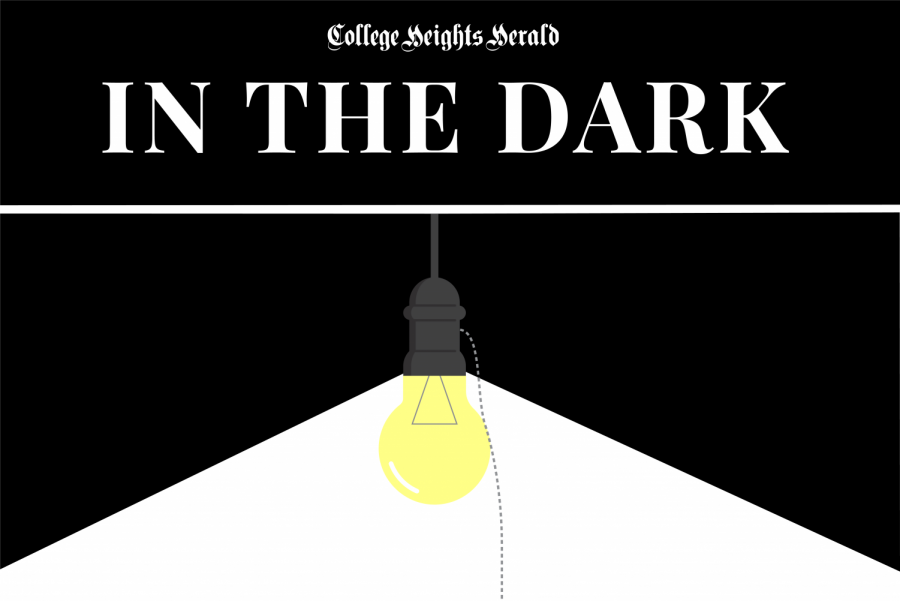





![Students cheer for Senator at Large Jaden Marshall after being announced as the Intercultural Student Engagement Center Senator for the 24th Senate on Wednesday, April 17 in the Senate Chamber in DSU. Ive done everything in my power, Ive said it 100 times, to be for the students, Marshall said. So, not only to win, but to hear that reaction for me by the other students is just something that shows people actually care about me [and] really support me.](https://wkuherald.com/wp-content/uploads/2024/04/jadenmarshall-1200x844.jpg)
